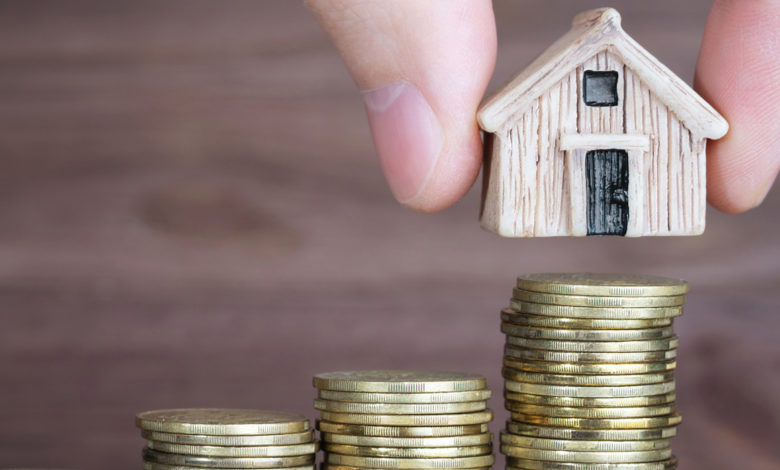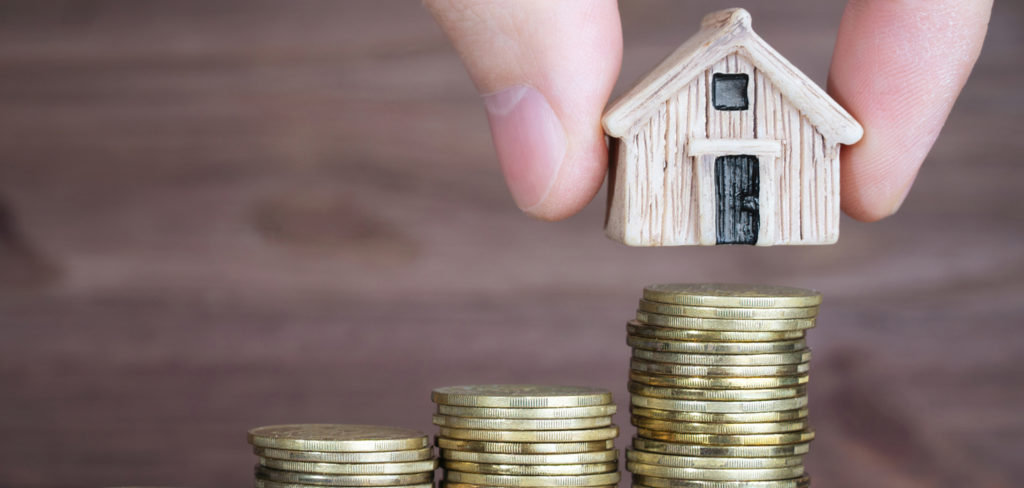

It has often been said that homeownership is the “American dream.” But over the past couple of years, that dream has become more difficult to obtain, given the substantial increase in real-estate prices across the country.
In many cases, buyers have been getting into bidding wars and paying over the asking price just to secure a deal. Opting to rent—even if just temporarily—might not necessarily be any better, though, given that monthly rent prices have also increased significantly.
So in this economic environment, is it smarter to purchase or lease your next home?
How Buying Impacts Your Net Worth
Home prices skyrocketed not long after the COVID-19 pandemic hit the US in early 2020. According to the National Association of Realtors, the nationwide median price of a home was a record $391,200 in April of 2022, up nearly 15 percent from just one year prior.
But the average rate on a 30-year mortgage also crossed over 5 percent in April, and it continues to rise. Due to the higher cost of financing, some prospective home buyers have been pushed out of the market, at least for now.
While those who are “sitting on the sidelines” and saving for the down payment on a future home will oftentimes rent, being a tenant lately has not necessarily been easy on the budget, either. Rents have risen by 30 to 40 percent or more just over the past year.
There are ways you can reduce the cost of your housing, though, regardless of whether you’re a tenant or an owner. These could include:
Splitting the cost of housing and utilities with your spouse, partner, or roommate(s). If you are the owner of the home, make sure that you have a lease drawn up in writing, and that the individuals pay you directly rather than sending their payments to the mortgage company.
Watching your utility usage. This can include turning off lights when you leave a room and keeping the heat and air conditioning at moderate levels.
Coming up with a larger down payment if you purchase. Doing so can lower your monthly mortgage payments.
The “Cost” of Money Has Gone Up
Buying a home is typically the largest purchase that you’ll make in your lifetime. Because of that, you may need to obtain a loan for some or all of the price, and this will require you to obtain a mortgage from a bank or other lender.
As many people are aware, the Fed has recently raised interest rates and there are plans to further increase them soon. One of the key reasons why rate increases happen is to help “slow down” the economy in an effort to reduce inflation.
Over the past decade or so, the United States has languished in a historically low interest rate environment, especially compared to the 1980s when rates on mortgages—as well as fixed-rate investments like CDs and bonds—were in the double digits.
But in spite of rising interest rates, the “cost” of getting a home mortgage could still be within reach. There are ways to make this even easier if you are willing to be flexible on the type of mortgage you get.
There are different types of mortgages available in the marketplace, and these can have a wide range of interest rates, depending on the length of the payment term, the amount of down payment you have, and your creditworthiness.
For instance, there are fixed- and adjustable-rate mortgages (ARMs). As its name implies, a fixed-rate mortgage will lock in at a particular interest rate for the life of the loan. This, in turn, can make it easier for you to budget, as the monthly payment will also remain the same.
However, with an adjustable-rate mortgage, the interest rate can change over time. In some cases, lenders will start out with a “teaser” rate for the first few years that is lower than the current rate on fixed-rate mortgages. But, over time, it is possible that the rate on an adjustable-rate mortgage can rise or fall, based on what is happening with interest rates in the overall economy.
Your down payment can also make a big difference in your monthly mortgage payment. In this case, if you offer less than 20 percent down on the sale price, you will likely have to pay an added cost for private mortgage insurance (PMI). This coverage protects the lender if the home buyer defaults on their mortgage payments, and those who have smaller down payments can pose a higher risk of default since they have less money at stake if they walk away from the property.
The cost of private mortgage insurance typically ranges from 0.5 to 2 percent of your loan balance, depending on your credit score, loan term, and down payment amount. Once you have accumulated enough equity in the home, though, the lender can drop the PMI and its added cost to you.
Those considering becoming renters should know that rent prices will continue to increase in a competitive market with high demand for rentals. And in some markets, renting could even become less affordable than purchasing a home.
Considerations Before You Decide
Before making a commitment to buying or renting, there are some important items to consider, such as:
Your Credit Score. Lenders typically take a close look at your credit score before deciding whether or not to approve you for a mortgage. While lenders may have different criteria, you’ll generally need a credit score of at least 620 to secure a home loan. Usually, higher credit scores indicate less risk to a bank or other lender, allowing them to offer you a lower interest rate.
Maintenance. The type and amount of maintenance can differ between a home that is purchased or one that is rented. For instance, if you own your home, you are typically responsible for all of its interior and exterior needs. But you can also make your own decisions regarding what you do (unless there are restrictions imposed by a homeowner’s association). In a rental, you can usually just contact the landlord and the repairs and/or replacements are up to them. Even though it is nice to not be responsible for these issues, you are also subject to the landlord’s rules and regulations.
Taxes and Insurance. When you purchase a home, your housing payments don’t typically end with just the principal and interest amounts in the mortgage payment. You will also have to pay property taxes and insurance. These costs can oftentimes be rolled into your monthly loan payment so that you don’t have to make separate payments on a monthly or yearly basis.
Name(s) on the Lease or Deed. You may consider putting the name of your spouse or partner on the lease or deed. In a buying situation, if he or she has a high credit score, this could help your chances of being approved for a mortgage and getting a lower interest rate. There are legal implications in doing this, though. Be sure to discuss with a financial professional or legal advisor to avoid unintended consequences.
If you’re not sure whether buying or renting your next home is the best move for you, it can help to discuss your options with a financial-planning professional. Working with someone who is also involved in the LGBTQ community can be even more beneficial, as they can walk you through the financial and tax-related pros and cons of either leasing or purchasing a home along with a spouse or partner.
This article appears in the August 2022 edition of OutSmart magazine.











Comments